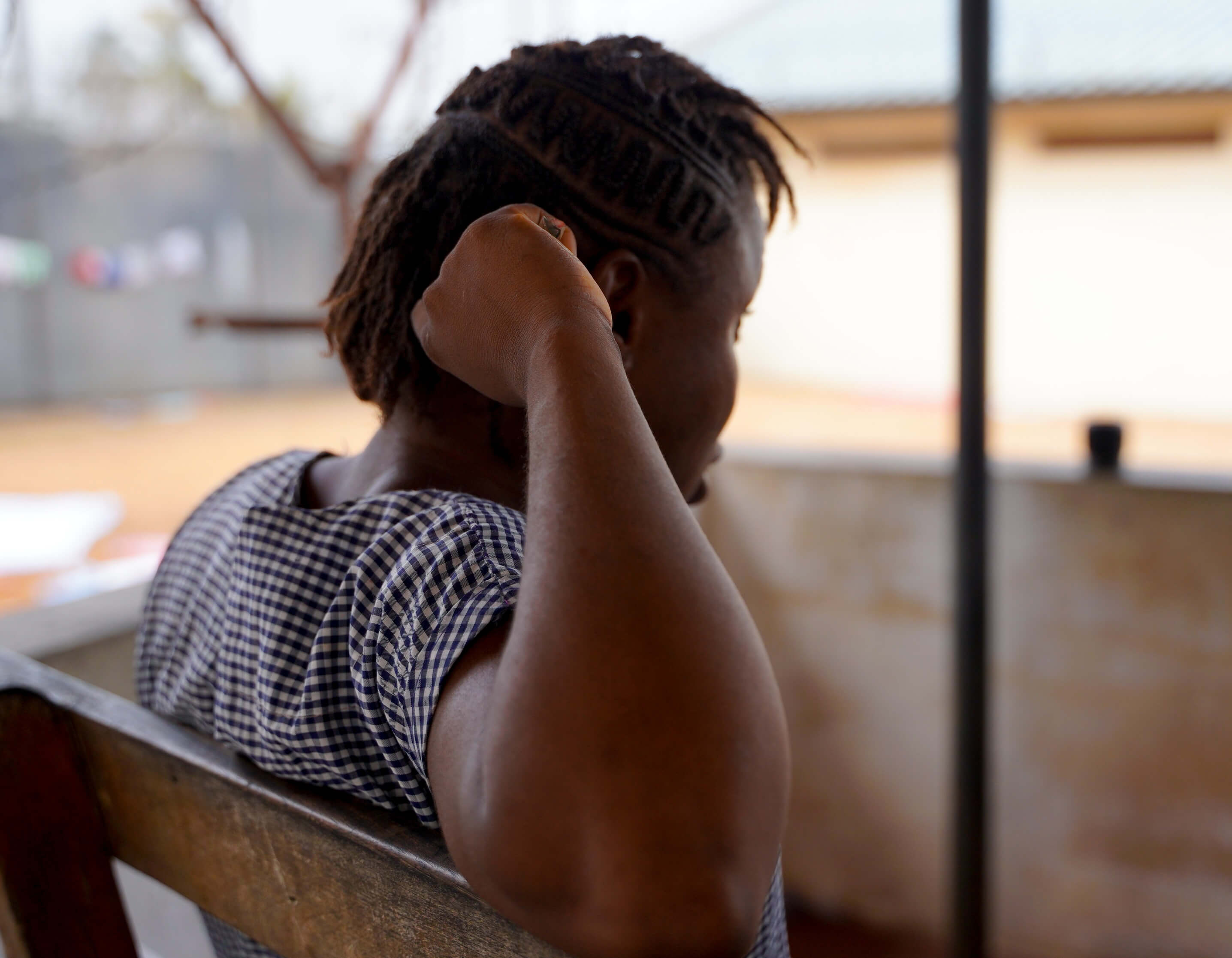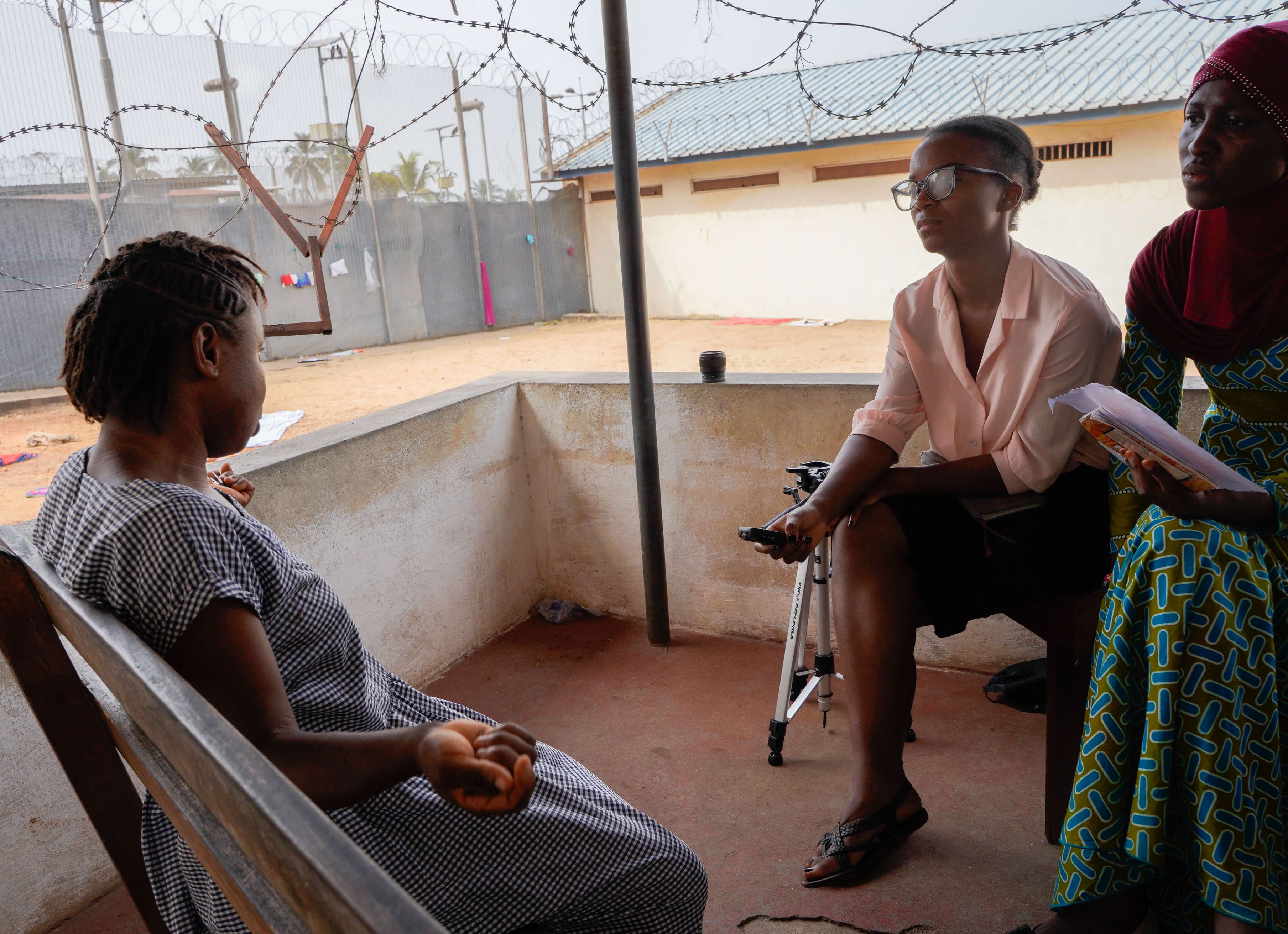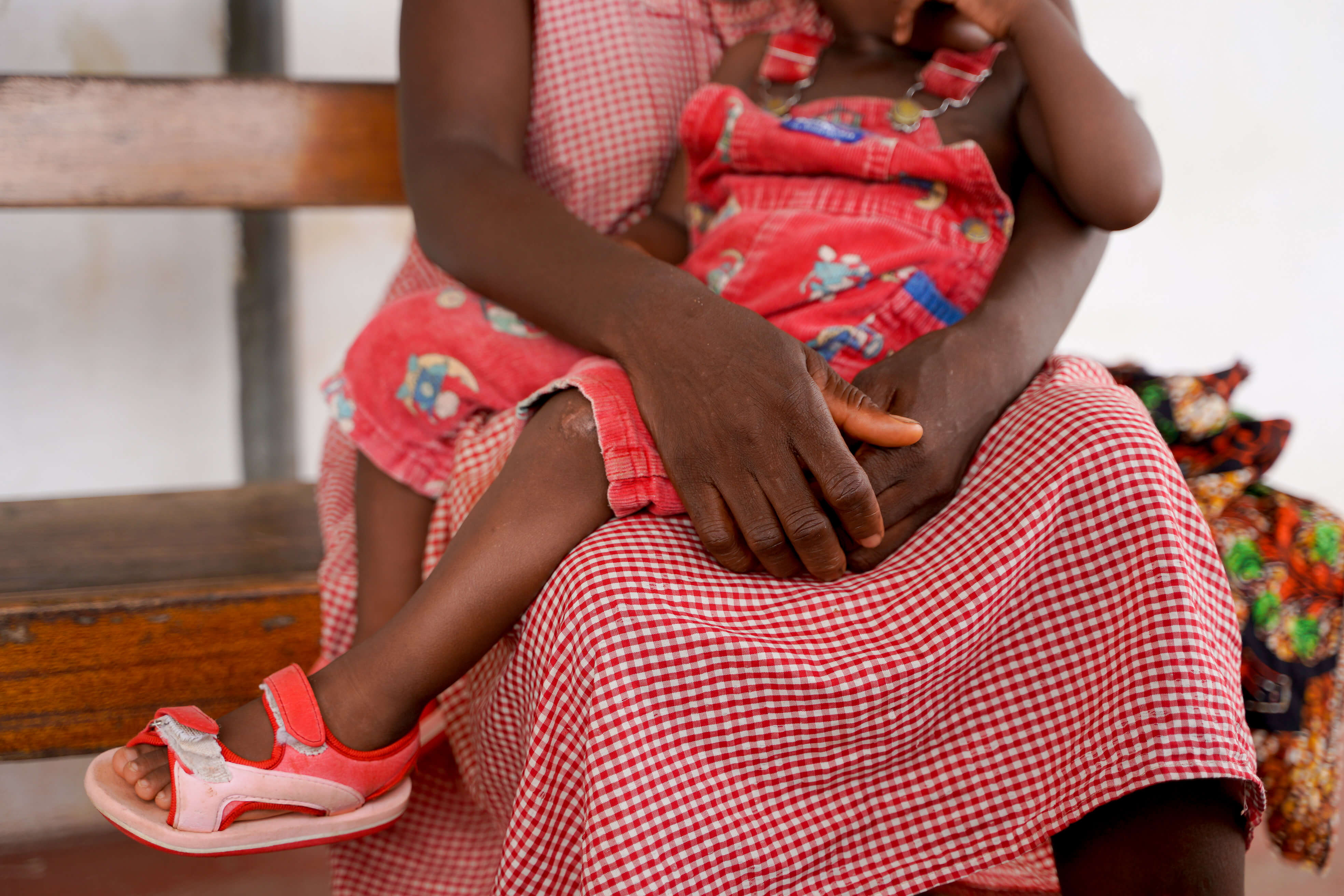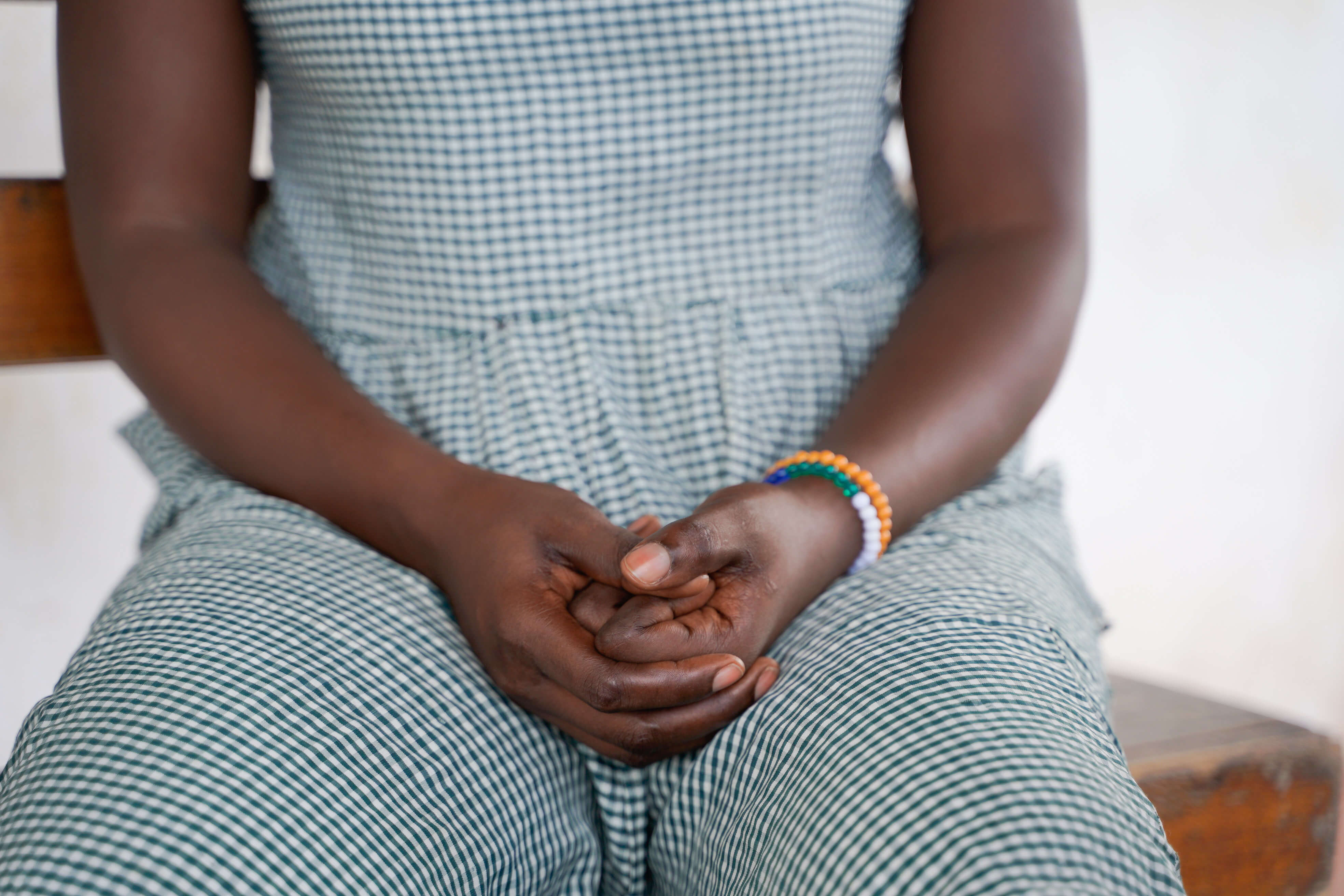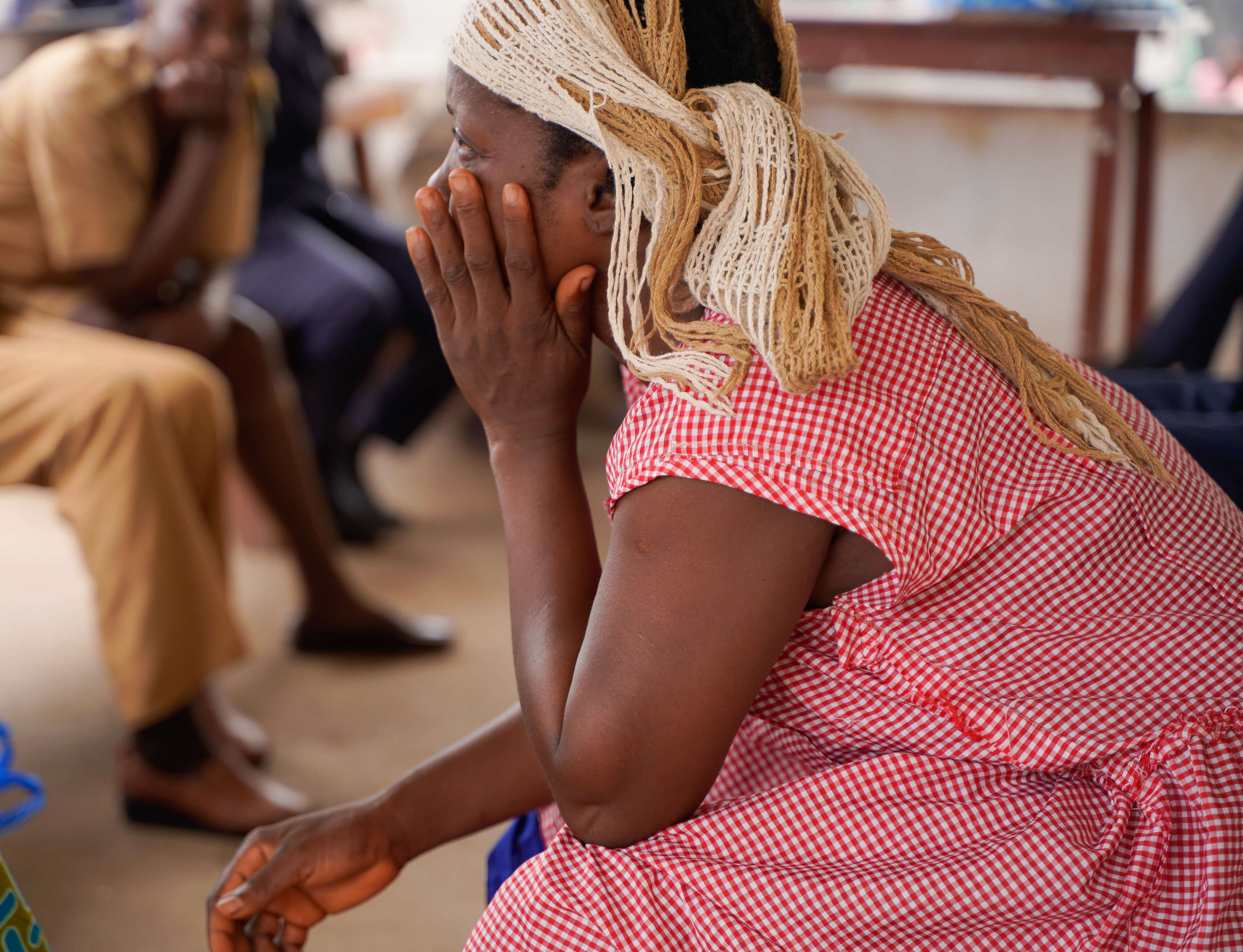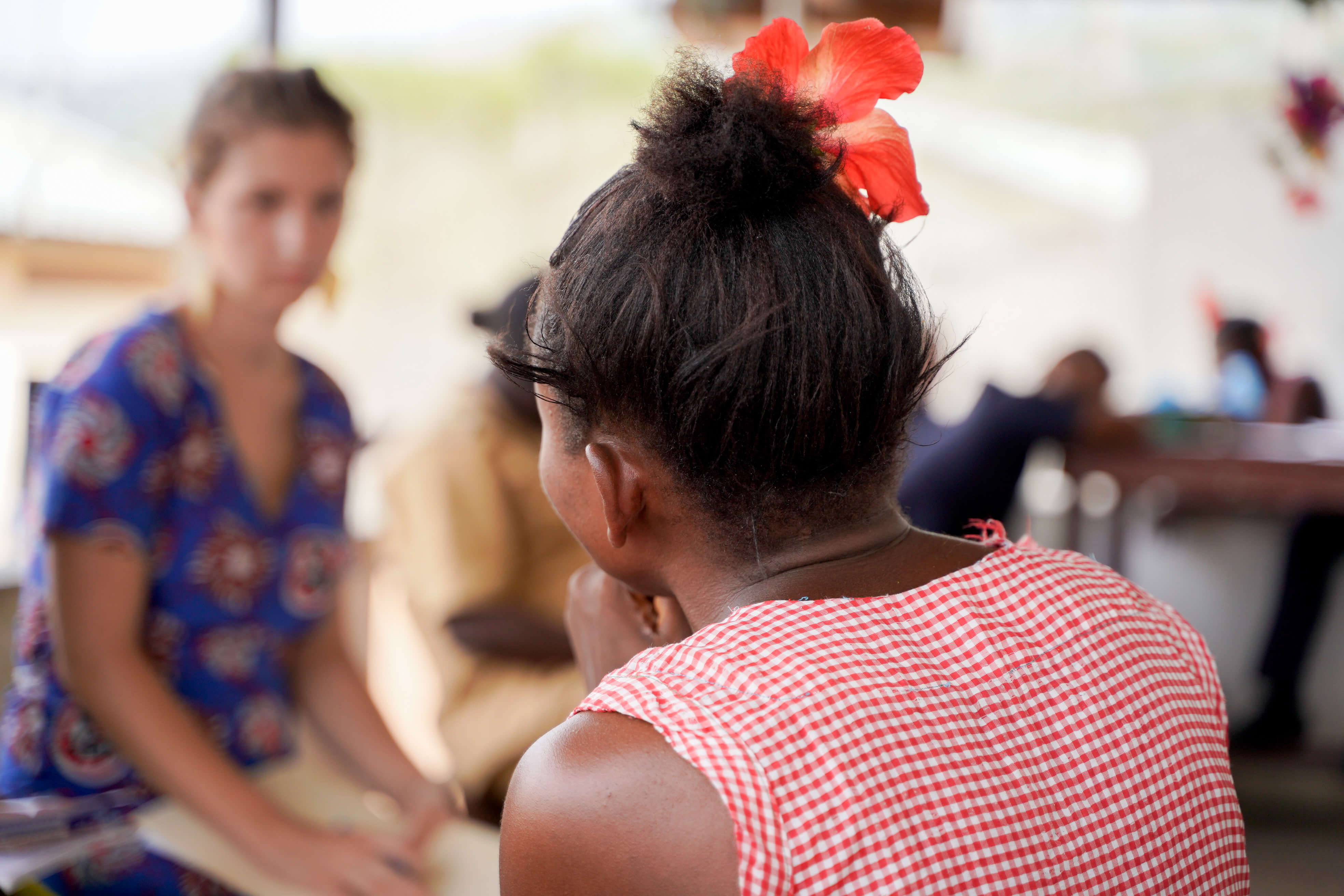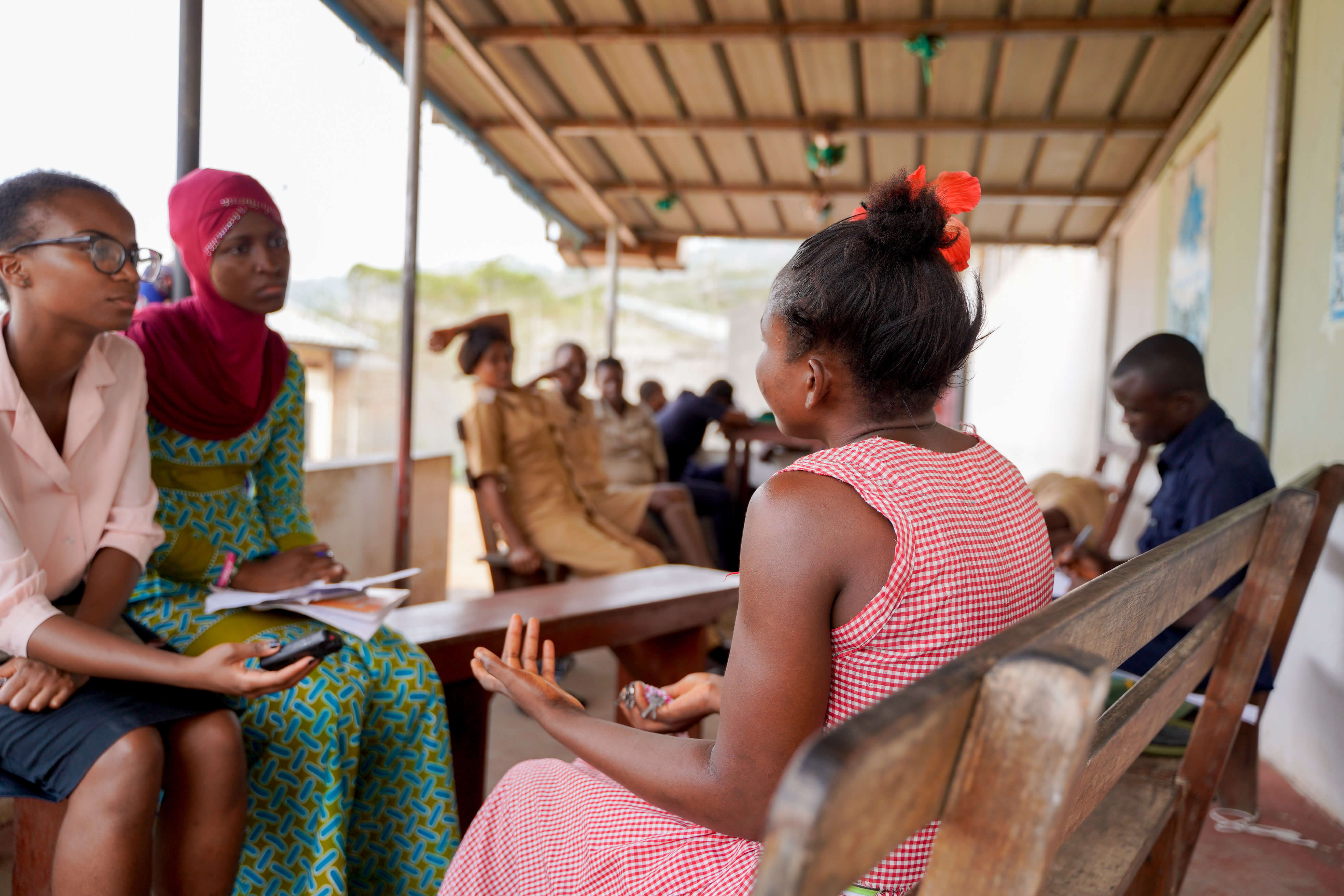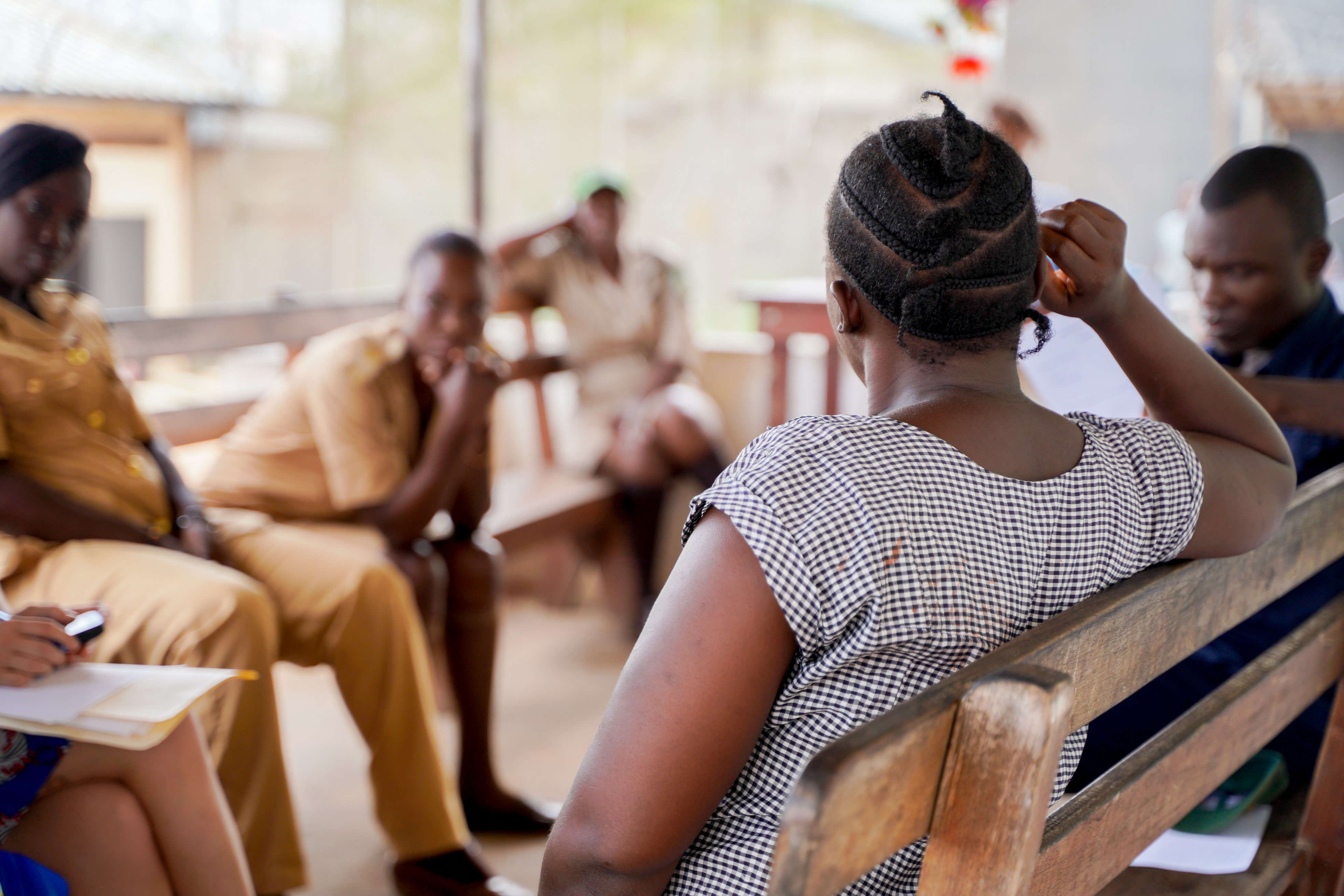Voices from Inside
Stigma and incarceration often come hand in hand. Many of the women we have worked with over the years have faced difficulties reintegrating into society upon their release from detention, shamed or rejected by their families and communities. The voices of these women are also often marginalised, their stories untold. Many of women who come into conflict with the law are survivors of gender-based violence and, in some cases, this experience of violence bears relation to the offence they are charged with.
During the 2018 16 Days of Activism Against Gender Based Violence, AdvocAid recorded and produced a series of short films entitled Voices from Inside, featuring the voices and stories of some of the women detained in the Freetown Female Correctional Centre. We had the unique opportunity to record both audio and video, bringing to life in their own words the stories of women who are often unseen and unheard. These are their stories.
AdvocAid would like to thank the Sierra Leone Correctional Service for their cooperation and to the officers at the Freetown Female Correctional Centre for their support during the interview process. A special thank you to Shantelle Spencer for volunteering her time and talent to capture this material on audio and film.
It’s a Tuesday morning in late November when we arrive at the Freetown Female Correctional Centre and the four of us are waiting patiently to be admitted. We’d received approval from the correctional service in advance and our Freetown-based Social Worker, Fatmata, had secured permission for us to speak to women about their stories. As we are in the middle of the 16 Days of Activism Against Gender Based Violence, we were here to talk to women about their experience of violence before incarceration. Eight women courageously shared their stories with us – about gender-based violence, but also their experiences, concerns, regrets and hopes.
All names have been changed to protect the identities of the women who participated in these interviews. Interviews were conducted in Krio and translated into English for this article and the short film sub-titles.
Aminata*
“So, I said: love is not by force”
Market Trader | Murder
Aminata was found guilty of killing her abusive ex-boyfriend and received the death penalty, the mandatory sentence for murder. At the time of the interview, she was awaiting her judgement from the Court of Appeal. As she sits down on the bench opposite us, she narrates her story hurriedly, the sentences pouring out one after the other.
“Me and him were together, but our lifestyles didn’t fit. So, I decided to tell him I don’t want him anymore. So anywhere he’d see me, he’d target me, because he said a woman shouldn’t tell a man she doesn’t want him”, she starts.
Aminata decided to avoid her ex-boyfriend, steering clear of the places they may cross paths. But living in the same compound did not make it easy and he was persistent.
Anytime they stumbled across each other, he would go at her, cursing her for having left him. “Love is not by force, love is not by force” – Aminata would tell him. To no avail. One morning, he showed up at her doorstep, looking for a confrontation with Aminata. “Come out to the street, come out to the street now and tell me you don’t want me! “– he shouted. Aminata went down to meet him. Seeing the man’s aggressive demeanour, she tried to retreat into her room. He followed her and started beating her with a rubber pipe. She fell, and as she did, her hand reached for something – anything – to defend herself with. She struck him with what she had grabbed and ran. It was a knife. It was only upon arrest that she was told her abuser had died. At her trial, Aminata was sentenced to death.
On 27th of April 2011, Aminata’s death sentence was commuted to life imprisonment by Presidential Pardon to mark Sierra Leone’s 50th Independence Day. Prior to this, in 2010, AdvocAid had filed an appeal on her behalf. Her appeal hearing closed for judgement in February 2015. Then in January 2019, after almost four years waiting, Aminata’s conviction and sentence was quashed and a verdict of not guilty was found. You can read more about her story here.
When asked what message she would like to reach the public, Aminata said:
“When someone offends you, avoid them. If they continue, go to the police, so that the court and the police can deal with it, and you can be free of it. Go to the police: they will deal with it. (…) At that time, I didn’t have any idea. I didn’t even know what a case was.”
Aminata’s Story – Part One
Aminata’s Story – Part Two
Isatu*
“[I regret that] I am sitting in here, I don’t have anything to give to my children.”
Market Trader | Mother of Six | Unlawful possession of marijuana
Isatu and her 18-month-old baby have been at the Freetown Female Correctional Centre for almost two years. Isatu has six children; the eldest is 19 years old, the youngest is the one on her lap. She and her family lived in a village, until Isatu’s husband left her and married three other women (which is legal under customary law in Sierra Leone). From that moment on, Isatu was left to fend for herself and her children.
Desperate to pay for her eldest child’s high school entrance exam fees, she decided to buy a large amount of marijuana and go to Freetown to try her luck.
“Marijuana. That’s the only thing you can sell from the village”, she said during our interview.
After she arrived in Freetown only a few hours passed when she was arrested on the street, taken to the police station and then to court. She fears that five of her children are left to fend for themselves whilst she’s on trial. On the day of our interview, her 18-month old baby is one of eight babies detained in the Freetown Female Correctional Centre with their mothers
Isatu expressed regret about what led to her conviction, telling us:
“…I am sitting in here, I don’t have anything to give to my children. (…) I’m not able to do the same as my peers outside. Looking at some of my peers in here, they’re not even healthy. Me, I don’t have anything, I don’t have any money, but at least I’m healthy”
Aisha*
“I’m just here.”
Market woman | Wounding
Aisha’s boyfriend was struggling. He had recently been fired from his job, so making ends meet was a daily challenge. Aisha explained that he had repeatedly said he was going to end his life and that he was tired of living.
“I wasn’t there when he stabbed himself. As soon as he pulled out the knife I ran. (…) I ran and called the neighbours”, said Aisha during our interview. Aisha continued by explaining that her boyfriend then reported her to the police for wounding that he allegedly did to himself.
It is unclear how long Aisha was held by police after being arrested before being sent to the Correctional Centre. At 8 months pregnant, she miscarried her child and she spent her ‘forty days’ of recovery at the Correctional Centre.
When asked about the difficulties she is facing, she said:
“It’s just time. But everything they’re [correctional officers] meant to do for us, they do. I have friends here. If I am stressed, they console me. But I left my 9-year old child behind with my mum. Last time I saw him was when I was in court. I miss my family (…) since I’m in here everything is gone. I don’t even know how my children are doing. I’m just here.
Aisha has been awaiting indictment for more than a year now.
We stand up from our interview with Aisha, stretching our legs and looking around to join in to the afternoon buzz of the Freetown Female Correctional Centre.
The sun is up. It’s 30 degrees Celsius today, an average temperature for this time of year in Sierra Leone. The Freetown Female Correctional Centre is lively: eighty inmates are incarcerated on the day of our interview, and their movements and voices are joined by the correctional officers – women who, for longer or shorter times, share the same space. Some inmates are watching TV, others are making beads or sitting in the sun, chatting.
After a break, we settle down again to the interviews.
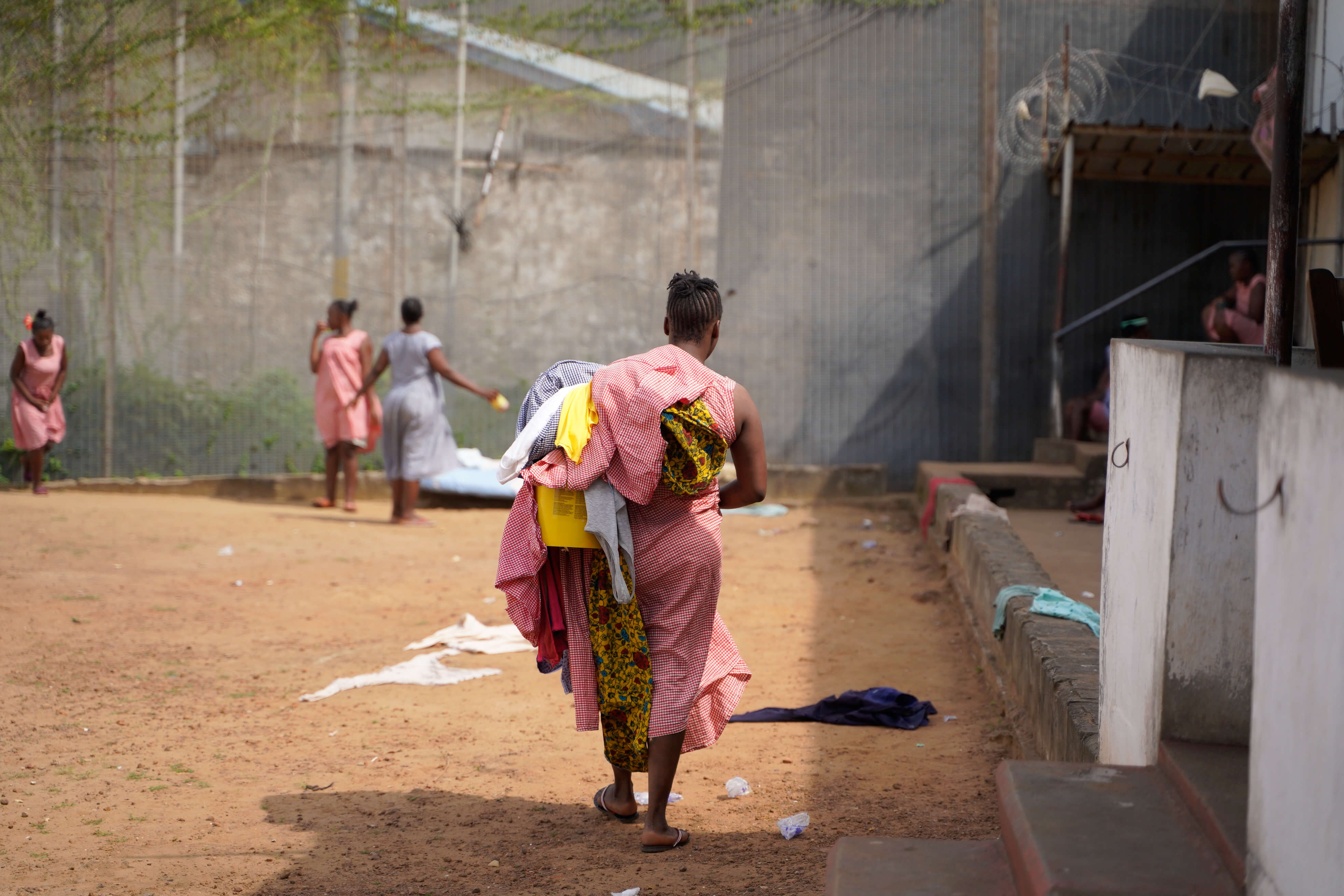
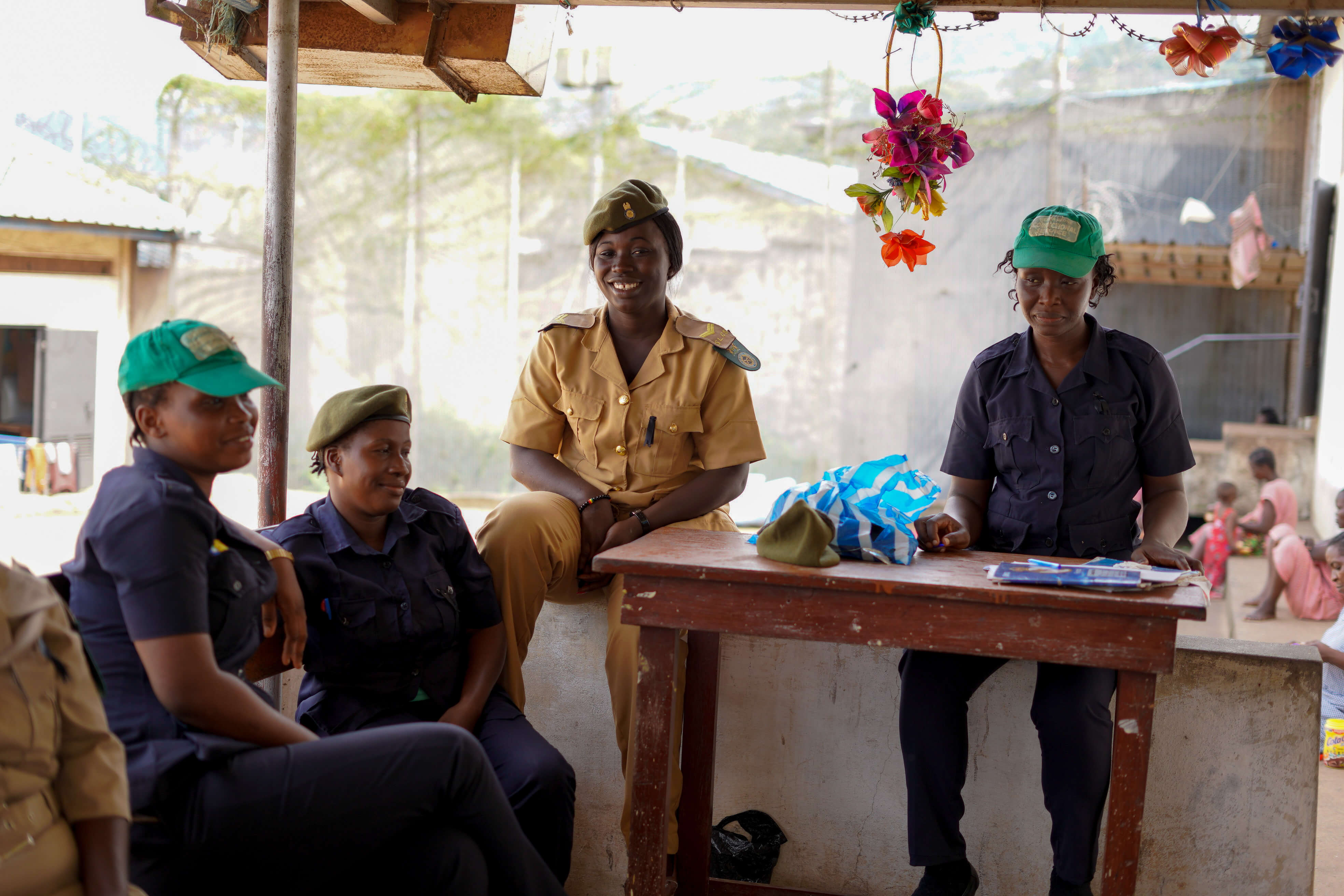
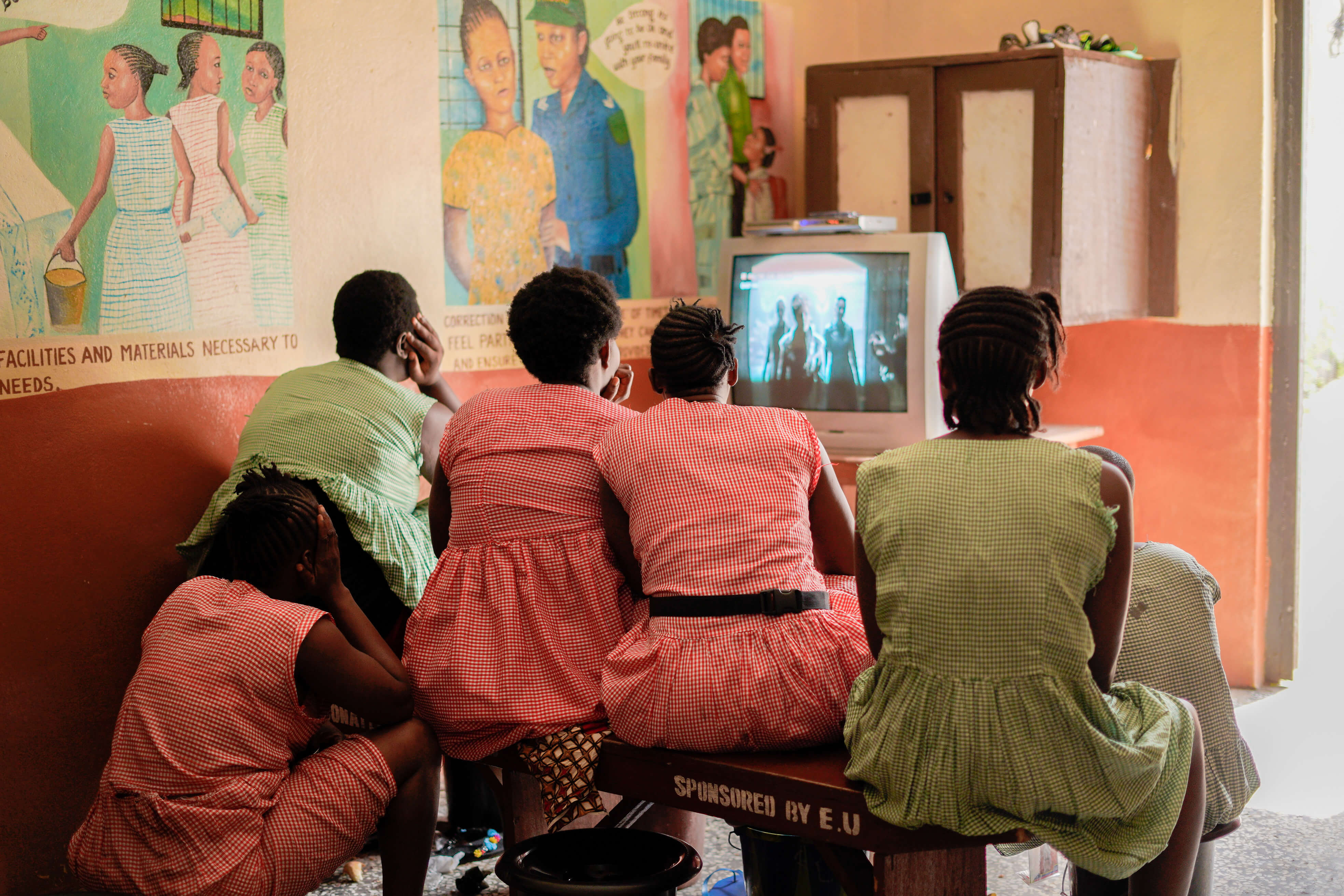
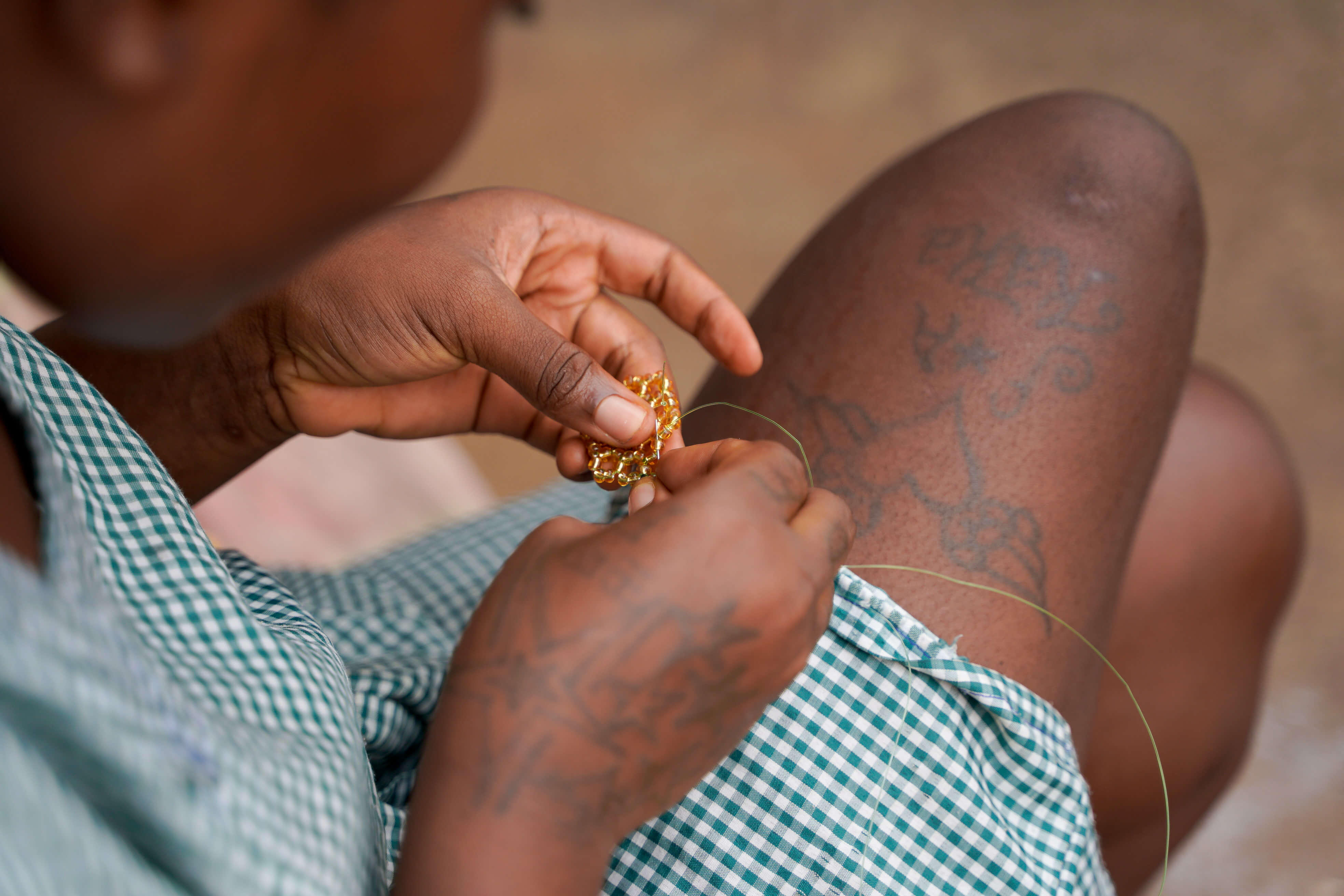
Kadiatu*
“They just left me like that”
Trader | Obtaining goods by false pretences
“When it started going badly, they disappeared. They left me, you understand?”, starts Kadiatu as she explains her palm-oil business that she had started running with two partners. Kadiatu opened the business after her partner left her. It was her way of starting a new life and of gaining independence. However, when the business encountered problems, she found herself in conflict with the law and was accused of obtaining goods by false pretences, detained and taken to court.
“They were really willing to give me bail because of the money I had brought. But because I had no one, they had to jail me (…) Us human beings, we like our freedom, don’t we?”
In talking about her regrets leading up to the conviction, Kadiatu says:
“[I regret that] where I’m from, what I’ve left behind, my business has collapsed. The ones who collaborated with me just left me like that. They don’t care about me. None of them thought to visit. They just left me like that with my problem. And I struggled a lot.”
Mariatu*
“If one day, he will come and ask me: where is my dad? How will I explain?”
Petty Trader | Murder
For Mariatu, it’s her third year in detention. Flower in her hair, she starts taking it out as she settles down for the interview, then puts it back with a laugh when we tell her she can keep it.
“Me and my man had one child” – she starts her story, describing how her man eventually left her. As her story unfolds we understand that she was facing a similarly desperate situation to that of Isatu, whose husband had left her. As the child got sick, Mariatu struggled to make ends meet and tried to turn to her man for help. One day, desperate to find a solution, she turned up at the man’s house.
She recalled what she said to him at the time: “This is the child. Today I’m leaving him with you and I’m going to my house.” He said she shouldn’t leave the child. Shouting back at Mariatu, she recalled him shirking responsibility and saying: “If you leave him, whatever happens, happens.”
A fight escalated and realising that he was serious in his threats to her and her child, Mariatu said that she tried to back out. She said that he grabbed her baby and wrapped him around her body, to which her man angrily reacted: “You think that just because you picked him up, I won’t beat you?” Arguments followed and as Mariatu was backing out of the room, the man pushed her. She fell down the stairs hitting her head in the gutter. She described how she was blind with rage when she picked up a bottle and smashed it on his head.
“It was only later that I realised he was dead”, she says as she concludes her story.
Now that she’s inside, Mariatu is worried. “My son says my sister-in-law is beating him. (She) says it’s because I killed her brother. (…) Tomorrow if I get out and he asks for his dad, how will I explain that? I don’t want him to grow up with hatred for me, for killing his dad.”
Voices from Inside – Mariatu’s Story (Part One)
Voices from Inside – Mariatu’s Story (Part Two)
Adama*
“(…) I don’t have anyone to fend for them.”
Young mother | Market Trader | Murder
The last person we talk to is Adama. Her grey checked uniform indicates that she is amongst those who have been sentenced to death. As she starts to talk, her story slowly unfolds.
Adama’s husband was working in one of the large mining districts in another part of Sierra Leone, far away from home. Refusing to help her after he left, Adama was left on her own with their children. Adama didn’t have a job, and in her desperation to make ends meet she decided to seek out her husband, making the long journey from her home to the mines with one of her children, a 6-month old baby, strapped on her back.
Adama described what happened next: “People snatchers** were chasing me, so I started running and my child fell. My husband’s new lover later went and made a statement that I had killed the child. She gave an undercover statement to the police so that they’d arrest me.” She was later found guilty of the murder of her baby and sentenced.
Adama is tearful during our talk, and when asked about what message she would like to get out to the public, she talks about her children.
“Let me go and look after my children… because I don’t have anyone to fend for them.”
AdvocAid is currently working on an appeal to overturn her death sentence.
** Adama described those chasing her as ‘people snatchers’ – this could be in reference to human traffickers, or people involved in ritualistic activities.

